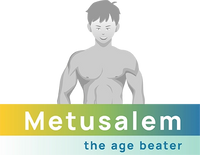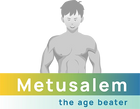The Role of Genetics in Healthy Ageing Unveiled

Frequently Asked Questions
1. What role do genetics play in healthy ageing?
2. How can telomeres affect the ageing process?
3. What lifestyle choices can influence gene expression related to ageing?
4. Why is nutrition important for healthy ageing?
5. How can personalised medicine help in ageing?
As we traverse through the journey of life, understanding the role of genetics in healthy ageing has become a pivotal point of interest for both scientists and those looking to optimise their wellness. Ageing is a complex biological process influenced by a myriad of factors, with genetics playing a foundational role. This blog post delves deep into how our genetic makeup affects our ageing process and what you can do to promote longevity.
The Science Behind Ageing and Genetics
Ageing, or senescence, is the gradual decline in function, vitality, and adaptability of an organism. While many recognise the outward signs of ageing, such as wrinkles or grey hair, the underlying biological processes involve complex genetic interactions. Our DNA carries instructions that govern our cellular functions, including repair, reproduction, and death. Here’s how genetics contributes to the ageing process:
Inherited Traits
One of the most significant ways genetics influences ageing is through inherited traits. Certain genes are associated with longevity, resilience to diseases, and overall vitality. For instance, some studies suggest that individuals with specific gene variants related to inflammation may experience slower ageing and improved health status as they age. These genes can impact everything from cardiovascular health to skin elasticity.
The Role of telomeres
Telomeres are repetitive nucleotide sequences at the end of chromosomes, serving as protective caps that prevent chromosome deterioration. As we age, our telomeres shorten with each cell division. Genetic factors influence the longevity of telomeres, impacting how our cells age. Maintaining telomere length can be crucial for healthy ageing, and several lifestyle changes can positively influence this aspect.
Environmental Interactions: More Than Just Genetics
While genetics plays an essential role in ageing, it's vital to acknowledge the interaction with environmental factors. Lifestyle choices such as diet, exercise, and stress management can significantly impact how our genes express themselves. This phenomenon is often referred to as epigenetics, where external influences can modify gene activity without changing the DNA sequence.
The Power of Nutrition
Nutrition is a cornerstone of healthy ageing. Eating a balanced diet rich in antioxidants, healthy fats, and essential nutrients is critical. For example, incorporating plant-based foods can provide numerous health benefits. Vegan pea protein, for instance, is an excellent source of protein that is easily digestible and packed with nutrients. As we age, maintaining muscle mass is crucial, and vegan pea protein can be a fantastic dietary addition to support muscular health. It supports an optimal diet, contributes to energy levels, and aids recovery post-exercise, ensuring that the body remains strong and resilient as the years go by.
Physical Activity and Gene Expression
Engaging in regular physical activity can also influence gene expression. Studies indicate that exercise can activate certain genes associated with muscle growth and fat metabolic processes. This means that a lifestyle predominantly featuring physical activity can bolster the genetic factors that promote longevity. Simple changes, such as incorporating strength training or even a daily walk, can significantly heighten one’s quality of life as they age.
What About Mental and Emotional Well-being?
Mental and emotional health can have a substantial impact on how we age. Genetics can predispose individuals to certain mental health conditions, but environmental stressors and lifestyle choices significantly alter outcomes. Practices like mindfulness and meditation can help mitigate stress's effects, promoting a healthier mental state. A rich social life and engaging with supportive communities also foster positive mental health, echoing the idea that cognition and emotion play crucial roles in ageing.
The Importance of Sleep
Sleep is another vital component often overlooked in discussions about healthy ageing. Genetics can dictate sleep patterns and susceptibility to sleep disorders. Not getting adequate restful sleep can accelerate the ageing process by affecting everything from hormonal balance to metabolic health. By implementing good sleep hygiene practices and recognising one’s unique sleep requirements, individuals can help support their genetic life quality through restorative rest.
Genomic Advances and Future Directions
With the rapid advancement of technology and research, our understanding of genetics in relation to ageing continues to evolve. Genomics is shedding light on how we can tailor our health strategies based on our genetic makeup. Through genetic testing, individuals can gain insights into their vulnerability to specific diseases, allowing for preventative measures to maintain health into old age.
Personalised Approaches
Imagine a world where your genetic profile informs every aspect of your health plan. This future is closer than ever. Personalised medicine, which takes into account an individual’s genetic makeup, can tailor dietary and lifestyle recommendations that promote healthy ageing. For those interested in vegan options, knowing how plant-based proteins like vegan pea protein fit into this personalised plan can enhance not just physical vitality but also overall wellbeing.
Harnessing the Power of Genetics for Healthy Ageing
We may not be able to change the genetic cards we are dealt, but understanding and utilising that information can be empowering. Here are some strategies to harness the power of genetics in the pursuit of healthy ageing:
- Nutrition First: Incorporate whole, nutrient-dense foods into your diet. Explore vegan options like legumes, grains, and, notably, vegan pea protein, which can complement your dietary needs.
- Stay Active: Incorporate regular physical activity into your routine, focusing on both cardiovascular exercise and strength training.
- Prioritise Sleep: Develop good sleep habits to support mental and physical recovery during the night.
- Manage Stress: Implement mindfulness practices and engage socially to foster emotional well-being.
- Seek Professional Guidance: If interested, consult with healthcare professionals for personalised genetic testing and nutritional advice.
Embrace Your Journey
Ageing is a natural part of life, yet the way we approach it can significantly impact our wellbeing and vitality. By understanding and embracing the role of genetics in healthy ageing, while also taking proactive steps in our lifestyle choices, we can enhance our quality of life as we age. Dive into the multifaceted connection between our genes and ageing, and watch as you uncover the secrets to not just living, but thriving as you grow older.
Take a moment to explore another user's Shopify or Wix store. Visit their store through this link. Please be aware that this is a promotional link, and we cannot be held responsible for the content of the linked store.

